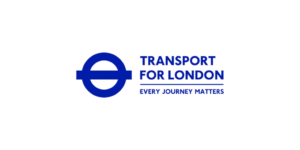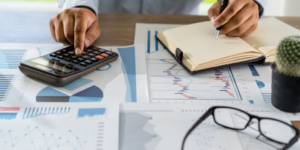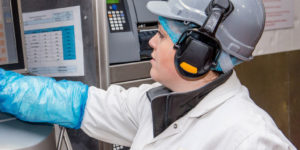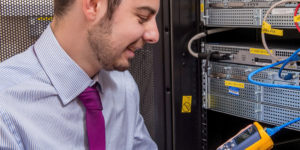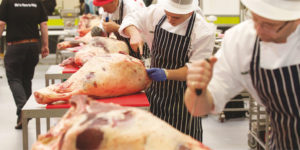Forensic Accountant Jobs
Forensic Accountant jobs… did you know?
Forensic accountancy is where finance meets fraud and the shadowy world of crime. Who’s cooking the books? Is that organisation truly squeaky clean, or hiding financial misconduct? As a forensic accountant it’s your job to find out, and you could work for all kinds of people including the government, banks, insurance companies or the police.
HOT TIP: ‘Forensic’ means ‘for use in court’. It’s important to you to be accurate, and that’s why you might be asked to be an expert witness in court and present your findings.
Industry: Legal, Finance and Accounting
Forensic Accountant job trends
How much money can you make as a Forensic Accountant?
£24,000 – £68,000 (UK average)
Recent labour market information says you can earn on average between £24,000 and £68,000 a year as a forensic accountant in the UK. The average salary is just over £40,000.
Your starting salary can vary because of factors like level of experience, training, location or the size of the company. Your salary as a forensic accountant will increase over time as you build skills, knowledge and experience.
What qualifications do you need to become a Forensic Accountant?
School, college and training
You’ll need a good passing grade in maths at GCSE level (or its equivalent) if you want to consider either further study towards an accountancy career or getting into a junior role and working your way up. You’ll also find it useful to study for A-levels or their equivalent, as this will help you apply for a degree.
Do you need a degree to become a Forensic Accountant?
Forensic accountancy employers typically like to see applications from graduates. The good news? You can do a degree in any subject. It doesn’t have to be in accountancy (although it would help).
Apprenticeships and training programmes
There are many accountancy apprenticeships available in the UK today. You’d most likely be trained to work in an accounts department and learn essential skills like:
- Balancing accounts
- Processing invoices and payments
- Completing VAT returns
- Helping to prepare financial statements and reports.
There are three types of accounting apprenticeship:
- Intermediate (e.g. accounts assistant)
- Advanced (e.g. trainee accounting technician)
- Higher (e.g. accounting technician, accounts manager)
Once your accountancy career is underway, you can research the Institute of Certified Forensic Accountants, who offer a Certificate in Forensic Accounting that will help you show your accountancy expertise in a specialised area.
Career Progression and further qualifications
As a qualified Forensic Accountant, you can congratulate yourself on your super achievement in an exciting niche area of accountancy. You could progress to higher-profile cases, taking on a leadership role, or becoming self-employed.
What experience do you need for Forensic Accountant jobs?
Work experience
To become a forensic accountant, you’ll find it useful to have previous work experience related to numbers, business, records and reports in an office-based environment. It’s really important for you to show you have integrity and a good eye for detail.
Examples of relevant work experience include:
- Work shadowing (even if it’s just for a day)
- Work placements in a company
- Year-long placements on a sandwich degree course.
What skills do you need for Forensic Accountant jobs?
Useful skills to highlight to your employer when applying for jobs as a forensic accountant include:
- Problem-solving skills (a logical approach to solving problems is essential. So is being able to analyse data, putting two and two together to make four, not ten.)
- Self-belief skills (you need to make good judgement calls – this means confidence, but also the self-belief that comes from experience)
- Communication skills (this job involves lots of creating written reports, but you’ll also often be asked to present your findings in court)
- Self-management skills (you’ll need good organisation and timekeeping)
- Teamworking skills (which could build to leadership skills with time and experience!)
- Some level of business understanding (knowing about your field of finance is usually something you pick up with time and training)
- IT skills (accountancy is high-tech these days and employers might want to train you in specialist software)
Vocational qualifications and work experience will help you build these skills over time.
Start building these vital life and work skills now with our free Young Professional training.
What does a Forensic Accountant do?
Forensic accountancy is exciting and niche work, and the stakes are high – sometimes, someone could lose their business or go to jail. Accurate research and presenting your finance-related discoveries in a way no-one could get confused about is key to your role.
You’ll be able (and expected) to do the following:
- Checking over financial records and pulling out relevant data
- Carrying out forensic research – you might, for example, be tracing a trail of money transactions
- Analysing the data you find
- Meeting and interviewing people to gain more information and clarify any potential issues
- Creating reports
- Attending court as an expert witness to present your findings.
Legal/finance employers supporting young jobseekers
Explore all jobs in Legal, Finance and Accounting
-
Account Manager – Cleaning Careers
-
Finance Administrator – Cleaning Careers
-
ABP Apprenticeships, Graduate Schemes and Early Careers
-
Graduate Schemes with ABP
-
Apprenticeships with Youth Friendly Employer ABP
-
Solicitor
-
Forensic Accountant
-
Chartered Accountant
-
Payroll Administrator
-
Legal Secretary
-
Finance Administrator
Useful organisations and links for finance careers



So what are you waiting for? Grab your future.


